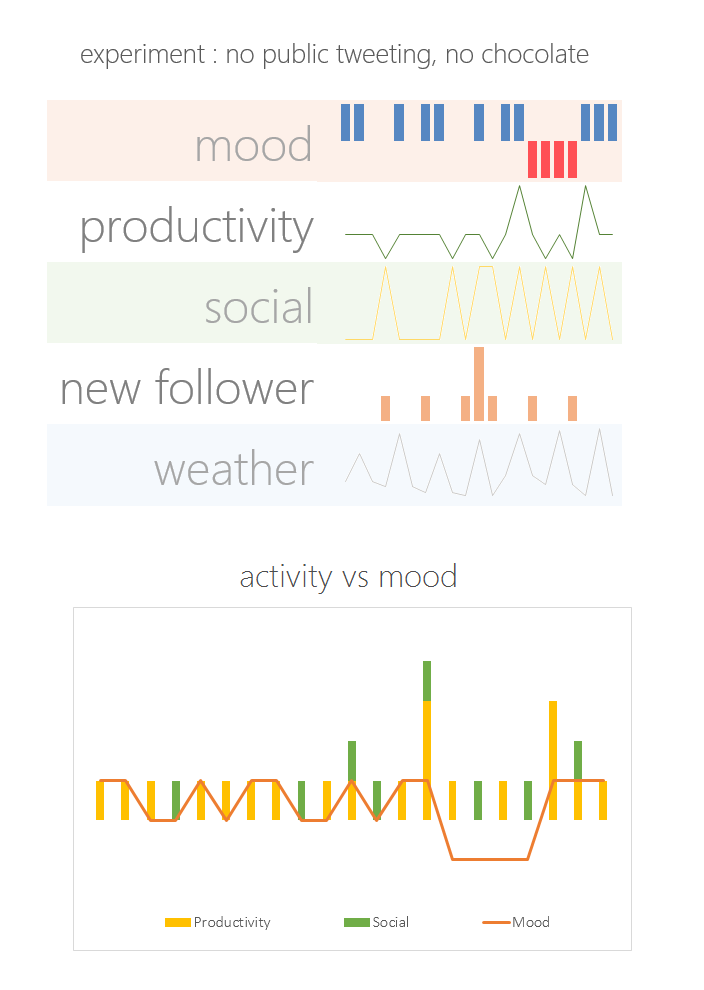This article is a little different from my usual SQL Server topic. I have been interested in data visualization and sociology research. There are two common ways of conducting a study in Sociology or Human Behavior. Due to the increase of (online) social networking, people’s sentiments and opinions can be gathered / harvested for different types of social study. The PASS Business Analytics Conference in April 2013 offers a session on Social Text, Sentiment, and Tone Analysis by Ruben Pertusa Lopez and Paco Gonzales. The session reviews Natural Language Processing, text mining and data mining techniques to observe sentiment and tone analysis. Such study can be used for analyzing brand reputation, market predictions and automatic learning.
Another way of studying social behavior is through the traditional method of observation and/or questioning. This can be conducted towards a set of population or an individual, depending on the purpose. Both observation and questioning methods carry some pros and cons (source: Science Buddies). These are:
Observation
+ Generally most effective means for studying young children who are unable to respond to questions
+ More convenient and less intrusive for subject
+ Captures an individual’s genuine reactions
– Limited to collecting data about visible characteristics or behavior
– More time consuming to capture sufficient data for conclusions
Questioning
+ Valuable for collecting information on unobservable variables such as feelings, motives, perceptions, attitudes, etc…
+ Usually less time consuming method for capturing sufficient data
– The questions, or the mere fact of being questioned, may influence a subject’s responses.
Self Experiment Using Direct Questioning Method
Recently I have decided to undertake a human behavior experiment on myself to understand the complexity in the process of the questioning method. This includes defining variables to control, data gathering and generating data visualization that is easy to understand / to consume. So here it goes. (Please note that at a personal level, I learn quite a lot in the process)
Abstract: The human body is designed to respond to changing environmental stresses in a variety of biological and cultural ways. Altering lifestyle, biologically and in technology consumption, can affect productivity, social activities and mood in one week.
Method: Replacing two regular routines with another familiar routine at higher concentration. The two routines being replaced are public tweeting and chocolate consumption. The replacing routine is various physical exercises at more intense and regular intervals.
Caveats: People are unique; this experiment is highly unlikely to yield the same result on different people due to difference in biological and cultural difference. Larger population may provide better trend and eliminate data noise.
Note: The difficulty in this study is that I don’t live in vacuum. So there are other factors affecting mood, productivity and social interaction. So there are uncontrolled variables that have not been taken into account into the results. Even if I take the same experiment at another time, I may yield a different result. This could be due to past experience or other uncontrolled variables in life. Yes, human behavior research is not an easy process!
Wrap Up
The traditional way of conducting traditional survey or observation on human behavior can be complex. In the self-experiment I have conducted, it seems to be error prone and is limited to a small amount of data analysis. I look forward to learning the large-scale and automated way of gathering and analyzing social interaction at the “Social Text, Sentiment and Tone Analysis” at PASS BA Conference in April. Hope to see you there!
Further Reading
Designing a Study in Sociology or Human Behavior by Science Buddies
Social Text, Sentiment, and Tone Analysis session at PASS BA Conference, April 10 – 12, 2013

No responses yet